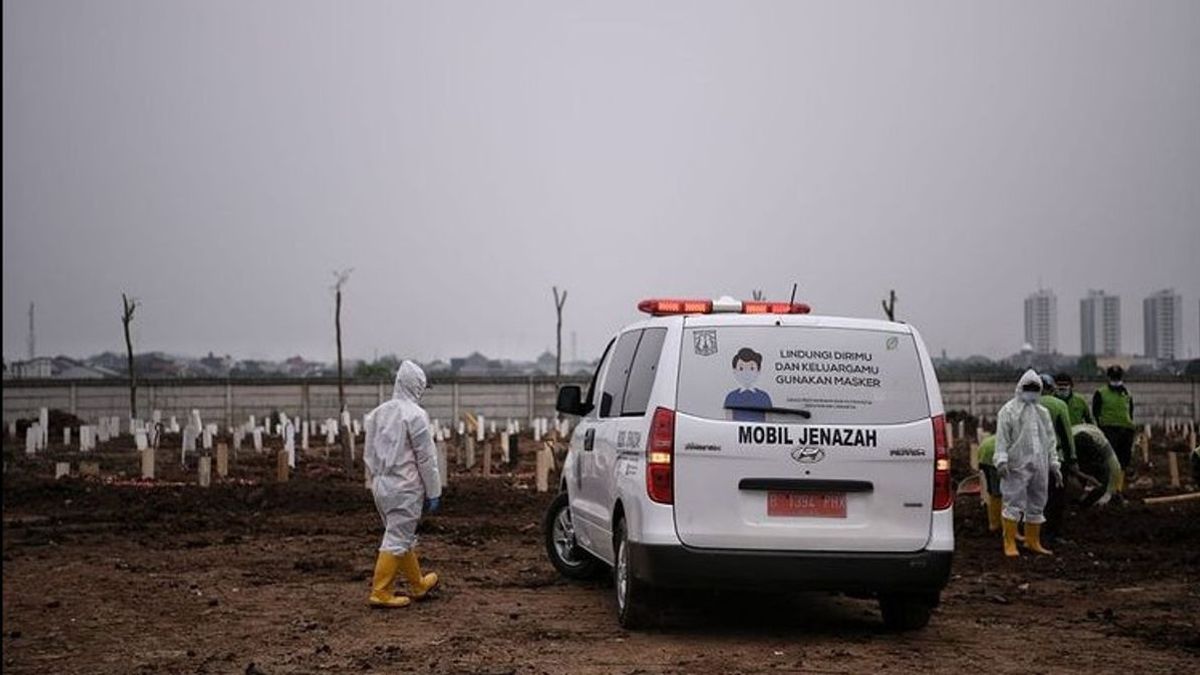DEPOK - Research results from the Faculty of Medicine, University of Indonesia (FKUI) show that the mortality rate of COVID-19 patients is high due to comorbidities or congenital diseases in patients such as hypertension, obesity and blood coagulation.
UI said the results of the research conducted by FKUI researchers had been published in the international journal Global Heart.
Reported by Antara, Wednesday, March 9, the study entitled "Cardiometabolic Morbidity and Other Prognostic Factors for Mortality in Adult Hospitalized COVID-19 Patients in North Jakarta, Indonesia" is the first study in Indonesia regarding the prognostic factors of death from COVID-19.
Prognostic factors are factors that are believed to have a relationship with cases that can develop into terminal disease, either recover, have residual symptoms, gain weight, become disabled, or die.
In the context of COVID-19, prognostic factors must be recognized so that the handling of COVID-19 patients is fast and appropriate so that patient mortality can be reduced.
Using the retrospective cohort method, this study was conducted on 243 COVID-19 patients at the Koja Hospital, Tanjung Priok, Jakarta, for the period 20 March–31 July 2020.
Data on groups of survivors and those who died from COVID-19 were taken from patient medical records to explore prognostic factors. The data includes demographics, clinical examination, laboratory and radiology of patients.
As a result, patients with congenital diseases, requiring immediate oxygen, abnormal RDW (red cell distribution width) status, and those undergoing chloroquine therapy (an antimalarial drug) have a higher risk of dying from COVID-19.
COVID-19 patients who died were more likely to have inherited diseases, such as hypertension, diabetes mellitus and obesity. Likewise patients who experience blood clotting.
This thrombotic situation may increase the risk of cardiac injury in COVID-19 patients. In addition, patients with an immediate need for oxygen also indicate the severity of the disease. Very low levels of oxygen in the blood cause excessive inflammation and progressive lung damage.
Other prognostic factors in patients with COVID-19 are higher variations in red blood cell size (RDW), low lymphocyte levels, and treatment with chloroquine.
It is feared that the administration of antimalarial drugs can cause side effects for COVID-19 patients, especially on the heart and blood vessel system.
Head of the Public Relations and KIP UI Bureau Amelita Lusia said the study on the prognostic factors of death from COVID-19 was chaired by dr. Arvin Pramudita and guided by Prof. Dr. dr. Bambang Budi S, Sp.JP(K), FISHR, FAsCC, FAPSC from the Department of Cardiology and Vascular Medicine FKUI- Harapan Kita National Heart Center, which involved a number of researchers from the COVID-19 service team at Koja Hospital, Tanjung Priok, Jakarta.
There were six researchers involved in the research, namely dr. Siti Rosidah, dr. Novi Yudia, dr. Jeffri Simatupang, dr. Wulan Pingkan Sigit, dr. Rita Novariani, Sp.P, and dr. Priscilia Myriarda, Sp.JP.
Although the research data were collected from one hospital, this study is unique because RSUD Koja Tanjung Priok, Jakarta, has diverse patient demographics that reflect the general population.
It is hoped that this research can be a guide for the government to prevent the collapse of the health system due to the pandemic.
The English, Chinese, Japanese, Arabic, and French versions are automatically generated by the AI. So there may still be inaccuracies in translating, please always see Indonesian as our main language. (system supported by DigitalSiber.id)













